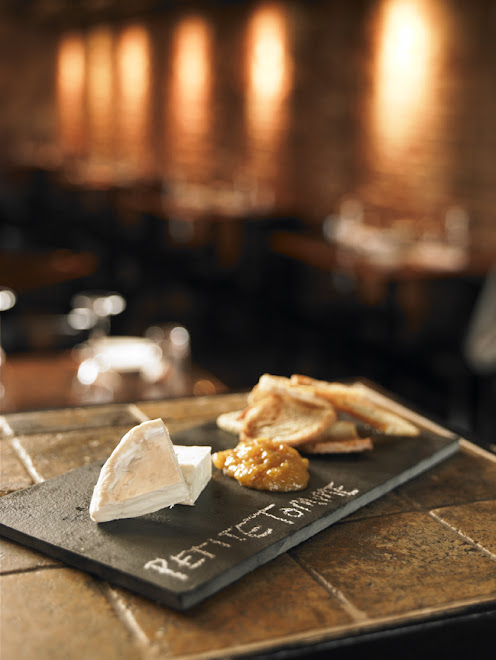THE GRINGO AND THE MANGO
Now let’s flash to April 16, to Punta de Mita, a surfer-infested Mexican fishing village just south of the privatized point of land where St. Regis and Four Seasons have plopped down some pretty spectacular structures in the gated acreage on the point.
It’s Spring Break ’11, and my family and I are on vacation. For one week, we are like a Norman Rockwell family with a little Griswold streak. There is Griswoldian pressure on us, because we don’t do family vacation—at least not of this caliber—more than once a decade. The pressure can manifest itself in some strange ways.
For example, I am gazing up into a mango tree, thinking seriously about climbing it. The tree itself weaves up through power lines at the edge of the street where restaurants and surfer shops block the view of the waves and the rock-studded beach. I find myself there because of my own intrepid (read: stupid) spirit. (While walking through the village under the heavy late-morning sun, my family and I had stopped, bemused, to watch five older gentlemen trying to literally pick the ripe, low-hanging fruit from the tree with a mangled rake. The problem, as we saw it, was that there was no low-hanging fruit left on the tree. The only mangoes worth groping for were fifteen to twenty feet up, above the rickety plastic chair, above the retaining wall, above the power lines.)
I rupture the charming image before us—men poking in vain at the low branches in hopes that ripe fruit would somehow fall from above—by gesturing to the men that I, a very pale but nimble tourist, was willing to scale great heights for their desired bounty. Without hesitation and with plenty of bastardized Mexican slang, I promptly climb up into the tree, fully intent on being a gringo Samaritan, an ambassador of goodwill to these earnest Mexican gentlemen.
Once in the tree, like a graceless grimalkin, I realize that I have no means of descent. As I make this realization, my wife brings to my attention the power lines weaving through the branches. I have the metal-tined, mangled rake in my hand and I can see the wires but note that they appear to be insulated. I continue to stab up into the branches unfazed. I am on vacation and am therefore invincible (also impervious to the effects of harmful sun rays). As I strike at the ripe fruits, they begin to fly from the tree like fat little jewels in the morning sun. The phalanx of men, who are now cheering me on, have gathered below the tree and are attempting to catch the falling fruit in their inverted hats. My quixotic folly has now become sport. I have brought fruit to the village and feel like a god on high.
Engulfed in an aura of self-sanctimony, my attention lapses and I do the inevitable, brushing my forearm against the power line. I gasp. I pause. I live. So, of course, I reach out and touch the line again. And again. I continue, to my amazement, to live. The men are now watching me, twenty feet or so above their heads, as I face the true test. Having survived electrocution, how does the silly gringo get down from way up there? I know they are wondering this, because they are humans with common sense and survival mechanisms built into their brains. When they were passing out this gene, I was taking a potty break, apparently. Nevertheless, I am peripherally aware of the laws of gravity, and so I begin to calculate my next move.
I begin my descent, dropping the rake to one of the men below. When he moves to catch it, it hits him in the head. I feel bad, but still invincible. When I get to the top of the wall (was it brick? I remember it being brick), I find myself astraddle a power line. Speaking to the men with the fallen mangoes, I make a joke in Spanish that won’t translate well at all: “Si me bajo asi, vamos a tener huevos revueltos para comer!” Very loosely: If I jump down now like this, we’re all going to have scrambled eggs for breakfast! (Ed. Note: the word huevos in Spanish refers not only to hen’s eggs that are eaten frequently for breakfast, but also to the low-hanging reproductive fruits of the human male.)
((Ed. Note Sidebar: The Spanish name for the avocado, aguacate, comes from a Nahuatl word meaning “testicles”. Evidently, the word was used originally because the early denizens of central Mexico had not yet learned the word “cojones”.))
In a leap of faith, I swing a leg over the wire and jump from the wall. It’s a high wall, maybe eight to ten feet. Maybe less than that too, but I’m telling a story here, so let’s say ten-plus feet. No eggs are scrambled in the process. Again, I live. I laugh a little as I land on the street.
The men are parsing out the fallen fruit in a democratic fashion. My family rushes over to me and tells me they think it’s really cool that I just climbed a mango tree. I don’t hurt, miraculously. The men hand my wife three ripe mangoes (because, we assume, it is a woman’s duty to carry the mangoes for the family), which we will eat three days later in the form of a perfect breakfast smoothie.
As I am walking away, the men are talking among themselves, holding the mango bounty they have dealt out, and one of them turns to me and says, “Thank you, Soo-pear-mon.”
Soo-pear-mon. He really says that, maybe with a slight undercurrent of playful mockery. I walk away with three mangoes and a secure notion that I would rather risk life and limb so that I can taste the glory of the high-hanging fruit.
Saturday, May 7, 2011
Subscribe to:
Post Comments (Atom)






No comments:
Post a Comment